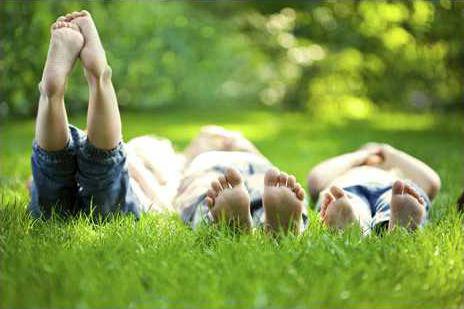As summer begins, those with school-age children have to decide what these kids will do with their weeks off of school and how closely they will be monitored. According to recent news, the amount of structure children have in their free time can have a significant effect on them down the line.
“Unscheduled, unsupervised playtime is one of the most valuable educational opportunities we give our children,” wrote Jessica Lahey of The Atlantic. “It is fertile ground; the place where children strengthen social bonds, build emotional maturity, develop cognitive skills, and shore up their physical health.”
Free time, Lahey continued, encourages children to be innovative and proactive. They will be more confident and generally develop more important skills than they would at camp or taking lessons of some kind.
“Parents, if you really want to give your kid a head start on (the) coming school year, relinquish some of that time you have earmarked for lessons or sports camp and let your children play,” she wrote. “That’s it. Just play.”
Esther Entin, also of The Atlantic, wrote in 2011 that not only does free play have real-world benefits, but children without enough free time may suffer adverse effects.
“(A lack of free play) affects emotional development, leading to the rise of anxiety, depression, and problems of attention and self control,” Entin wrote. The amount of time that children spend playing is on the decline, she wrote. “It is not that anyone set out to do away with free play time. But its value has not been recognized.”
However, giving young people unstructured free time does have proven downsides.
According to a 2010 study cited by Crisis Prevention, “teens who gather informally without adult supervision are more likely to engage in violent behavior.” This phenomenon extends even to what the study described as safer or “good” neighborhoods, which also see an increase in violence when young adults spend unstructured time together.
A recent Harvard study found that children tend to gain weight during summer months, according to ABC. While researchers were not certain what the exact causes were, they suspect part of it is due to a lack of schedule and structure. Additionally, minorities such as blacks and Hispanics are more likely to see weight gain at a disproportionate level.
“Engaging kids in structured sports or camp programs and expanding access to summer food programs for low-income children might help,” ABC's Jonel Aleccia wrote.
Part of the problem, Aleccia reported, comes from the sedentary activities that many children choose in their free time, such as TV or video games, so the issue might not be how much time or structure children have, but what they fill it with.
Bethan Owen is a writer for the Deseret News Moneywise and Opinion sections. Twitter: BethanO2
Unsupervised playtime: pros and cons to children's development





